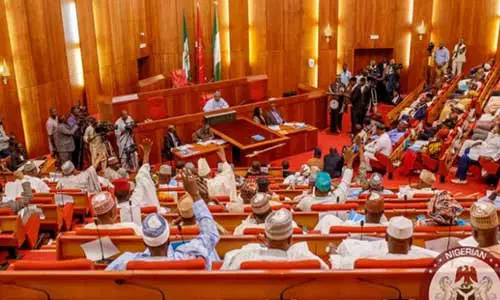
As the National Assembly in Nigeria commences another round of reviewing the 1999 Constitution, senators are sharply divided over renewed calls for a return to regionalism as a system of governance. Some senators believe that reintroducing regionalism could be the solution to Nigeria’s numerous challenges, while others strongly oppose the idea, citing historical failures and the potential risks of such a shift.
During a two-day retreat organized by the Senate Adhoc Committee on Constitution Review in Kano, various lawmakers expressed their views. Senate Leader Opeyemi Bamidele (APC, Ekiti Central), Senator Abdul Ningi (PDP, Bauchi Central), and Senator Muntari Dandutse (APC, Katsina South) voiced strong opposition, while Senator Abdulfatai Buhari (APC, Oyo North) supported the idea.
Senate Leader Bamidele cautioned against making hasty legislative decisions on the matter, stating, “Going back to a regional form of governance is something that will go beyond a bill being sponsored in parliament. It requires a political consensus, and the Nigerian people must be involved in this debate before any legislative action is taken.”
He further emphasized that the complexity of amending the constitution makes it challenging to change Nigeria’s governance structure without wide consultation and agreement. “Why is it so difficult to amend even one section of the constitution, let alone change the entire structure of governance?” Bamidele asked, calling for more debate before any legislative action is taken.
On the opposing side, Senator Ningi argued that regional government had failed to deliver equitable development in the past. “My constituency did not benefit from the regional government based in Kaduna. We aren’t going back there again,” Ningi stated firmly, adding that he believes in a reformed federal system with clear distinctions of power between the federal and state governments.
Senator Dandutse also criticized the proposal, urging Nigerians to focus on good governance rather than restructuring. “Narrow thinking will not get us anywhere. Every region in this country is blessed; what we need is responsible leadership and fair access to resources,” he said.
However, Senator Buhari argued that regionalism allowed for more efficient resource management in Nigeria’s First Republic. “The regions were able to harness their resources without the dominance of any particular area. A return to regionalism could reduce corruption by making the center less attractive,” Buhari explained.
Nigeria previously practiced regionalism from 1954 to 1966, with the Northern, Western, and Eastern regions, before it was abandoned following the 1966 coup and the subsequent civil war. The debate continues as senators, political stakeholders, and civil society weigh the implications of returning to a regional system.






